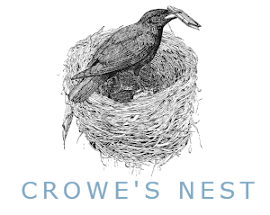 |
| Photo credit: captionedGIF.com |
When people think "action" or "adventure," chances are movies come to mind first. Of course you can’t compete with the movies; nor should that be your goal. What you should do is capitalize on the things that books can do that movies can’t--- show thoughts and emotions. Capitalizing on that in action scenes is one of the main reasons why you hear "The book was so much better than the movie."
Seriously, guys, books ftw. Even when you're talking (or ESPECIALLY when you're talking) about action and adventure.
When Writing Action Scenes:
To make it more exciting, add emotion. Readers want to know how it’s affecting the character.
To make it more interesting, have clever dilemmas. Or clever ways to get our characters high up in that metaphorical tree and then to throw rocks at them. Don’t go with what comes to mind first. Keep thinking and come up with dilemmas you haven’t heard a million times before.
To make the reader root for your character, show the character being clever. It can take a LOT of brainstorming to figure out how to get them down from that tree after you did such an amazing job of getting them up there. And let's face it: it’s really hard when you need your characters to be more clever than you are. What we have that our characters don’t, though, is time to think. Do it.
To make the reader care, show lots of character. Readers care much more for the action if they care for the characters. It’s a time to show their character in the way they respond to everything.
Don’t go too long without action. I’m not saying your characters have to run for their lives or jump off a cliff (although I am quite fond of characters jumping off a cliff ;)). Action can be things as simple as running to make the school bus. Exploring a hospital while trying not to get caught. Being caught in a rainstorm. Something that gets the characters excited and moving. Preferably fast.
And never use lots of description during action scenes. It will bog it down. Every time. If where they’re going to be needs lots of description, have it be before the action. In a previous scene, if possible. If the best way to lay out the scene is during the action, keep it very short and sparse. Think of what the characters would actually notice when they were in that situation. If they just broke into the bad guy’s lair, stole his freeze ray, set off the alarms in the process, and are racing out of the building while trying not to get caught, they aren’t going to notice that the paint on the walls is pale yellow, and cracked and peeling at places. Or that the light fixtures look like they belong in an old castle. Or that there’s a pomegranate scent drifting through the hallways. They might, however, notice that the floor stones are uneven, making it hard to run. Or that the lights are flickering, plunging them into moments of darkness.
But possibly the most important thing with action / adventure is to make sure your reader cares about your characters, otherwise they won’t care what happens when your characters get into trouble.
And on to the 5th element every book needs... A SENSE OF WONDER!
































17 comments:
Hi Peggy - had to comment on 'your' cat - what a great clip to post .. now that will sit in my mind .. and to me he encompasses all .. humour, scariness, mystery - and then Action and I'm in ..
Great post with lovely examples -
Fun - cheers Hilary
Great points, especially that action doesn't mean something 'deadly' all of the time. Enjoying these! Thanks :)
Love this, Peggy. Love it love it. :)
Great advice, as always.
yup, definitely could use this tip for my YA novel as well.
Great tips, Peggy. So agree the reader has to care about the characters. And for middle grade, it's important that there's lots of action to move the story along.
Love these. I've been looking forward to these Monday Posts. So true, if we don't care about the characters, we could care less what they're going through.
Gah, I'm so bad at action scenes! This is awesome!
Now I go back through my ms and review for action scenes. Good point about describing location in scene prior as to not bog down action. <- Um, that was wordy. Thanks, Peggy!
I love it :) I hadn't thought about emotion being the reason we always love the book more than the movie, but you are so right! As always :)
Awesome advice, Peggy!
Those are great suggestions, and not just for MG books. lol
Peggy, Thanks so much for posting the middle grade stuff!!!!
Just ran across your blog (from a Twitter post)---excellent discussion of what needs to go into a middle grade novel! I'm printing these out to put into my writer's notebook. Thanks! bobbi c., author of Princess Primrose and the Curse of The Big Sleep.
Hi Peggy,
Thanks for putting together five informative posts. All of the clips were hilarious.
Tracy :-)
I loved this series, Peggy! I know you specifically mentioned middle grade novels, but your posts also shed light on writing for young adults as well -- and I imagine other ages, too.
Good point, too, about how sometimes our characters have to be more clever than we are, but at least we have time on our side so we can think of what to have them do that's so clever. Critique partners are lifesavers there, too, since two writers are smarter than one sometimes.
Fantastic tips as usual! Caring about characters is what truly makes a great novel.
Post a Comment